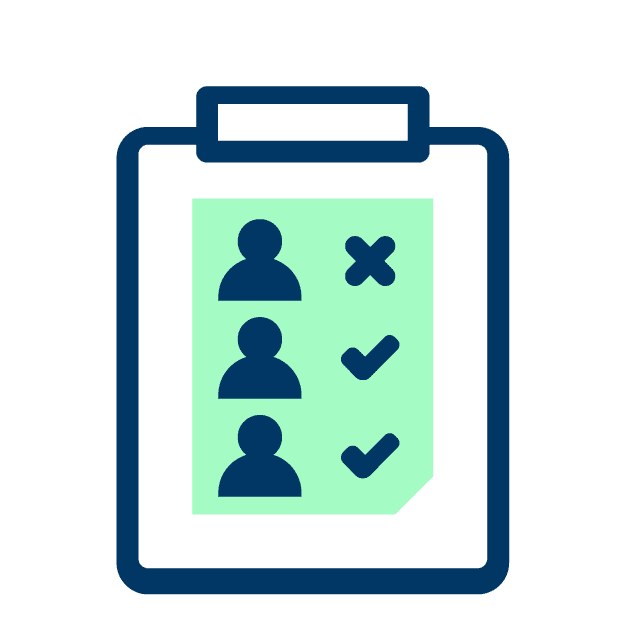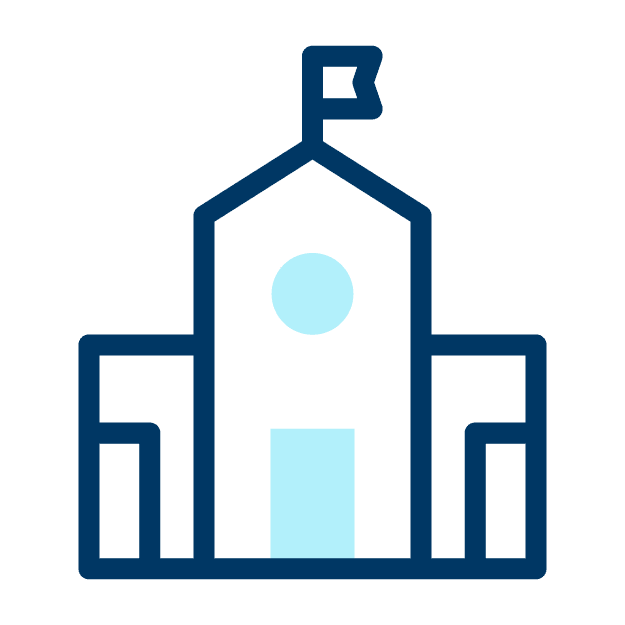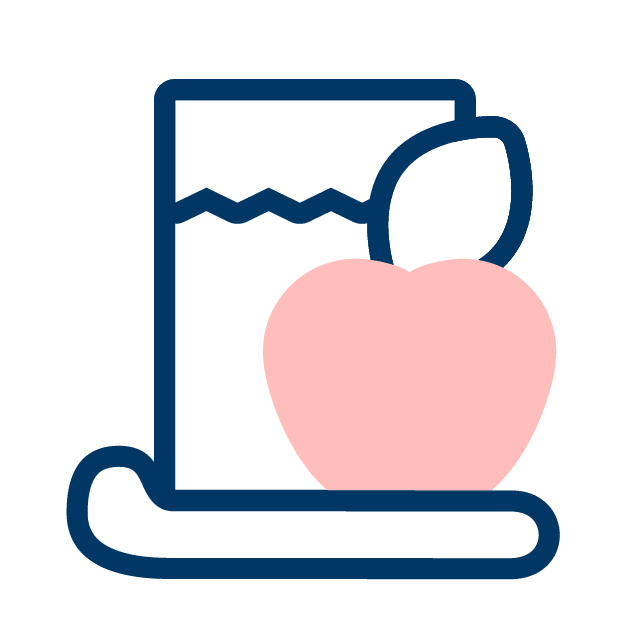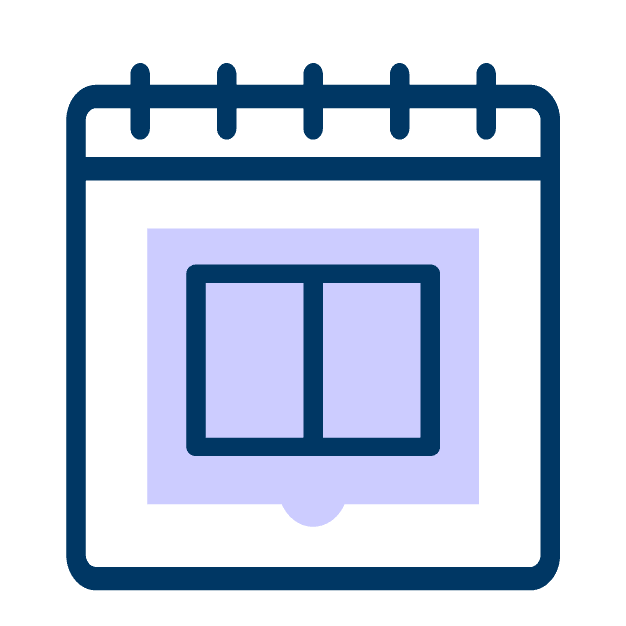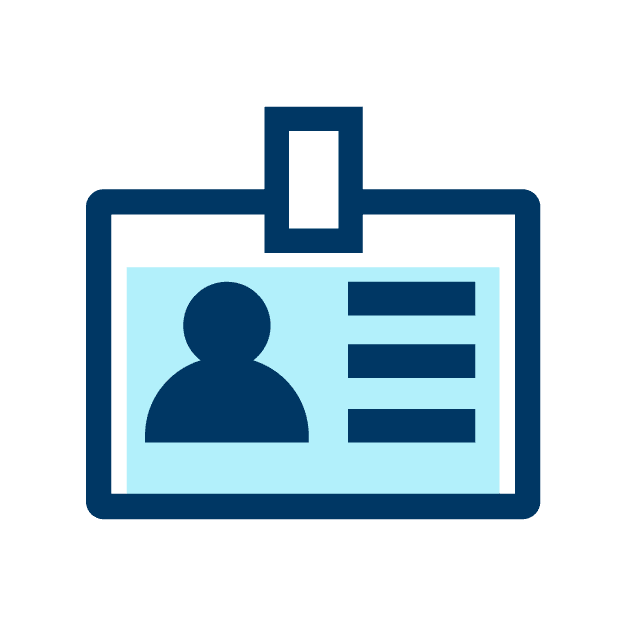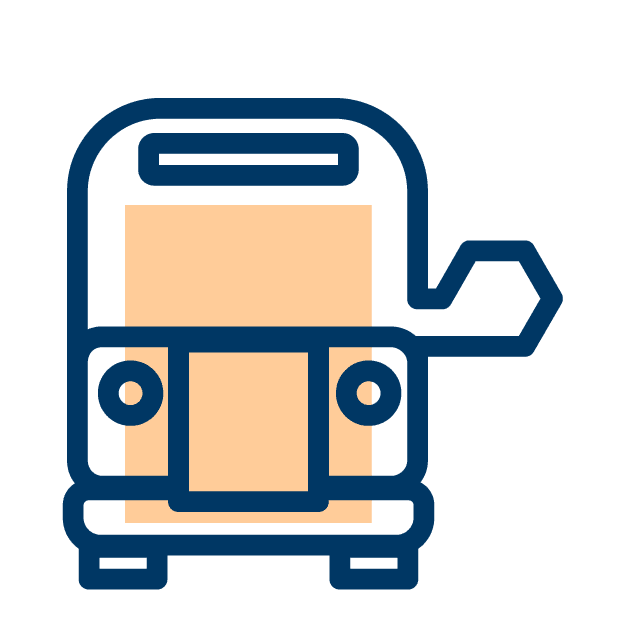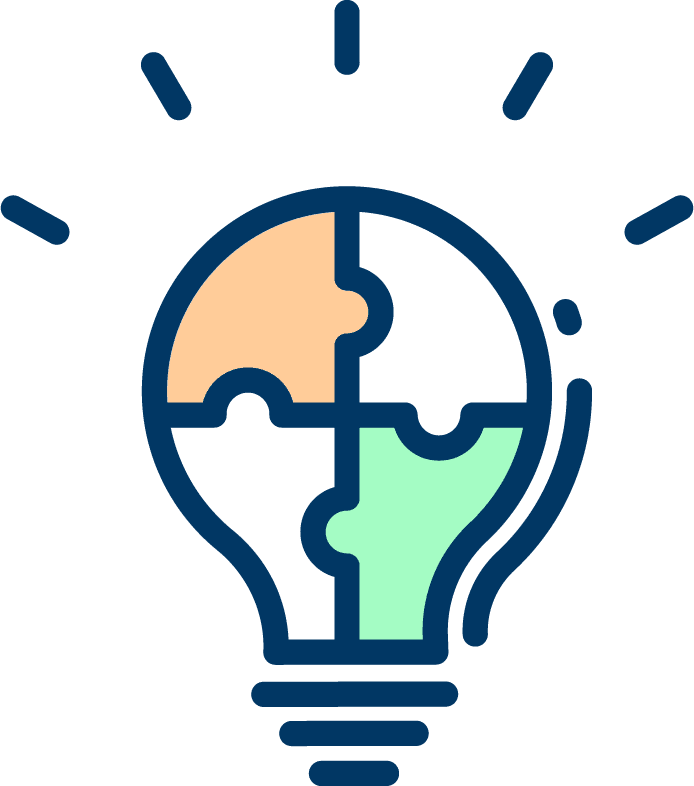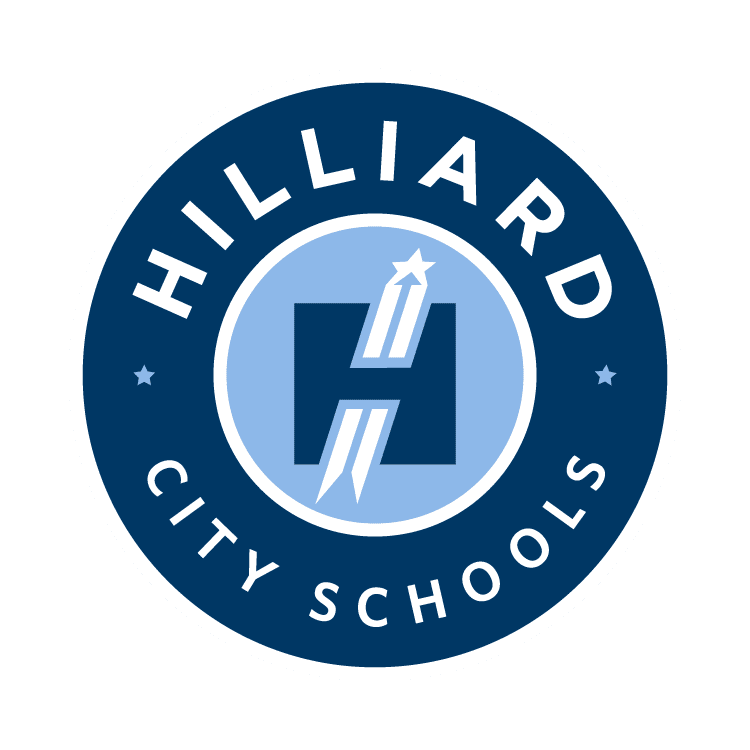504 Plan
Section 504 is part of the Rehabilitation Act of 1973 and is a civil rights law that protects people with disabilities from discrimination for reasons related to their disabilities. A student may be eligible for a 504 Plan if the student has a disability but does not require Special Education services. A 504 Plan is developed to support students with disabilities, ensuring they have equal access to education through provided accommodations.
Accommodations
Changes made to how a student learns or is tested, helping them succeeed without altering the content. This includes changes in presentation format, response format, setting ortiming. Accommodations are to provide equal opportunity to show knowledge.
Adapted Physical Education (APE)
Adapted Physical Education is an adapted, or modified, physical education program designed to meet the gross motor needs of students in grades one through twelve. Services are generally provided either directly in the classroom or monitored in the regular physical education classes.
Audiological
Audiological services can help with managing issues that affect hearing and balance, such as hearing loss.
Behavior Intervention Plan (BIP)
A plan to address a behavior of your child that is not appropriate in school.
Career Site
The volunteer Career Sites take place in various businesses and the job experiences usually occur one day a week for a maximum of 1-2 hours with direct training and supervision of a job coach. The Career Site work experiences give the students hands-on work experience in a real-life setting and opportunities for exploring future career choices and opportunities for developing employability skills.
Child Find
Hilliard City Schools is responsible for locating any child birth through 21 with a suspected disability who resides within the Hilliard School District. If you know of a child who is suspected to have a disability, please contact Jamie Lennox, Director of Special Education, at 614-921-7000 or contact your building principal. More information on Child Find is available on the Ohio Department of Education Website.
Community Work-Study Jobs
Typically, when students are in 11th or 12th grade and ready, they locate and begin work in the community at paid positions. They can earn elective credit toward graduation for every 160 hours that they are employed. Students oftentimes get individual assistance in locating possible job openings and preparing for interviews but they must have their own transportation and obtain employment on their own.
Consultation
Licensed intervention specialists provide assistance to and collaboration with the general education classroom teacher, developing instructional or behavioral strategies for students with disabilities, selecting and/or developing instructional materials, and assisting in the development of appropriate classroom and instructional accommodations and/or modifications of the general education curriculum.
Continuum of Special Education
The Individuals with Disabilities Education Improvement Act (IDEIA) requires states to establish procedures to assure, “that to the maximum extent appropriate,” students with disabilities are educated with students who are not disabled. In order to do that, Hilliard City Schools special education services are provided through numerous service delivery options, including, but not limited to Consultation, Direct Instruction and Support.
Direct Instruction
Licensed intervention specialists provide specially designed instruction and evaluation of instruction based on the general and/or functional curriculum in areas identified in the student’s IEP. Instructional methodologies include, but are not limited to, differentiated instruction, modeling, guided practice, multi-sensory instruction, corrective feedback, progress monitoring, and a provision in small group settings.
Disability Category
Students eligible for special education services may be eligible under the following disability categories:
- Autism
- Emotional Disturbance
- Hearing Impaired (including deafness)
- Intellectual Disability
- Multiple Disabilities
- Orthopedic Impairment
- Other Health Impairment (Minor or Major)
- Preschooler with a Developmental Delay (ages 3-5 only)
- Specific Learning Disability
- Speech or Language Impairment
- Traumatic Brain Injury
- Visual Impaired (including blindness)
Dyslexia
Ohio law defines dyslexia as a specific learning disorder that is neurological in origin. Dyslexia is characterized by unexpected difficulties with accurate or fluent word recognition and poor spelling and decoding abilities not consistent with the person’s intelligence, motivation and sensory capabilities. Difficulties typically result from a deficit in the phonological component of language.
Additional information is posted on the Struggling Readers and Dyslexia page.
English Learner (EL)
Ohio defines a student who is an English learner as one who has a primary or home language other than English and needs special language assistance to effectively participate in school. English learners are eligible for support to assist in meaningful participation in school classes and activities.
Extended School Year (ESY)
Extended school year (ESY) services are special education and related services a student with a disability may receive beyond the normal school year. ESY is available only if the IEP team decides that ESY services are necessary to keep the student from experiencing a significant loss of skills or a significant loss of knowledge that seriously affect the student’s progress toward his or her educational goals that your child cannot adequately regain. ESY services may be the same or different from the student’s regular school year services as determined by the IEP team. The provision of ESY services is not automatic year after year.
Evaluation Team Report (ETR)
The evaluation team report (ETR) is the initial step for identifying a disability and determining the appropriate educational needs of an identified student.
Family Education Rights and Privacy Act (FERPA)
The Family Educational Rights and Privacy Act (FERPA) requires parental consent or consent from the student if he/she is age 18 or older before personally identifiable information contained within the student’s education records is disclosed.
Free appropriate public education (FAPE)
Free appropriate public education (FAPE) means that students with disabilities receive a public education that is at no cost to the family that meets the child’s individual needs through an individualized education program or IEP.
Hilliard City Schools Preschool
Individualized Education Program (IEP)
If a student is eligible for special education and related services, the team will develop and implement an Individualized Education Program (IEP). It is a written is a written document that describes the program of special education instruction, supports, and services children with disabilities need to make progress on specific, measurable educational goals.
In-School Work Stations
Before transitioning into community jobs, many students participate in an in-school work station. Students are matched with an adult supervisor in the school building. Students work for one period each day. Examples of in-school work stations are custodial helper, cafeteria kitchen helper, main office helper, and guidance office aide.
Individuals with Disabilities Education Act (IDEA)
IDEA is a federal law that gives rights and protections to parents and children with disabilities through a written plan called an Individualized Education Program (IEP). IEPs are available to eligible children from age 3 through age 21. Parents have rights under the law, including the right to participate in their child’s education and make decisions about their child’s educational services. Under IDEA, schools must provide a free appropriate public education (FAPE) to kids with disabilities, and children with disabilities must learn side by side with children who do not have disabilities as much as possible (Least Restrictive Environment or LRE).
Intervention Specialist
Licensed intervention specialists provide specially designed instruction in collaboration with the general education classroom teacher that supports the student in the instruction of the general curriculum in areas identified on the student’s IEP.
Least Restrictive Environment (LRE)
Least Restrictive Environment means that children with disabilities should be in the same classroom as children who do not have disabilities as much as possible. To ensure that children with disabilities are educated in the LRE, they should receive supports and services to meet their needs and help them to be in the general education classroom.
Modifications
Large changes in what the student has to complete This includes changes in teaching level, class content, and performance criteria. It may include changes in test format.
Multi-tiered System of Supports (MTSS)
Occupational Therapy (OT)
Within the school environment, school-based occupational therapy focuses on facilitating independence with learning and school-related activities such as classroom seating/positioning modifications, playground motor skills for engagement in activities, lunchroom independence in self-feeding, and school bus seating needs and hallway locker management.
ODE: A Guide to Parent Rights in Special Education
Orientation & Mobility
Orientation and mobility (O&M) services are special education related services that help students with visual impairments navigate their communities and travel independently.
Parent Mentor
Physical Therapy (PT)
School-based physical therapy focuses on the gross motor skills and needs of the student to effectively access his or her educational environment such as deficits in balance, coordination, strength, posture, and mobility within the school setting. School-based physical therapy is provided only if a medical diagnosis or motor delay is determined by the IEP team to have an adverse effect on the student’s performance at school.
Present Levels of Performance (PLOP)
Present Levels of Performance on an IEP is the information about a student’s current academic and functional levels compared to expected grade level standards used to provide a frame of reference to establish a baseline from which each annual goal is developed.
Prior Written Notice (PWN)
There are certain times when the school must put in writing its decisions about your child’s education and the reasons for those decisions. This written communication is called “prior written notice.”
Related Services
Related Services are supportive services that assist students with disabilities to benefit from special education. These services may include, but are not limited to:
- Adapted Physical Education
- Audiological
- Interpreter
- Occupational Therapy
- Orientation & Mobility
- Physical Therapy
- School Psychological
- Speech and Language
- Specialized Transportation
- Transition/Work Study
Reading Improvement and Monitoring Plan (RIMP)
A Reading Improvement and Monitoring Plan outlines reading instruction and support for a student with reading difficulties. For additional Information – Ohio Statewide Family Engagement Center: What is a Reading Improvement and Monitoring Plan?
Additional information is posted on the Struggling Readers and Dyslexia page.
School Psychological Services
School psychologists work with:
– educators, parents, and other professionals to help create safe, healthy, and supportive learning environments that strengthen connections between the home, school, and community for all students. – students to provide counseling, instruction, and mentoring for those struggling with social, emotional, and behavioral problems.
– students and their families to identify and address learning and behavior problems that interfere with school success; to evaluate eligibility for special education services within a multidisciplinary team; to support students’ social, emotional, and behavioral health; to teach parenting skills and enhance home-school collaboration; to make referrals and help coordinate community support services.
– teachers to identify and resolve academic barriers to learning, to design and implement student progress monitoring systems, to design and implement academic and behavioral interventions, to support effective individualized instruction, to create positive classroom environments, and to motivate all students to engage in learning.
– administrators to collect and analyze data, implement school-wide prevention programs that help maintain positive school climates conducive to learning, and promote school policies and practices that ensure the safety of all students by reducing school violence and bullying.
They also respond to crises by providing leadership, direct services, and/or coordination with needed community services.
– educators, parents, and other professionals to help create safe, healthy, and supportive learning environments that strengthen connections between the home, school, and community for all students. – students to provide counseling, instruction, and mentoring for those struggling with social, emotional, and behavioral problems.
– students and their families to identify and address learning and behavior problems that interfere with school success; to evaluate eligibility for special education services within a multidisciplinary team; to support students’ social, emotional, and behavioral health; to teach parenting skills and enhance home-school collaboration; to make referrals and help coordinate community support services.
– teachers to identify and resolve academic barriers to learning, to design and implement student progress monitoring systems, to design and implement academic and behavioral interventions, to support effective individualized instruction, to create positive classroom environments, and to motivate all students to engage in learning.
– administrators to collect and analyze data, implement school-wide prevention programs that help maintain positive school climates conducive to learning, and promote school policies and practices that ensure the safety of all students by reducing school violence and bullying.
They also respond to crises by providing leadership, direct services, and/or coordination with needed community services.
School Psychologist
Specialized Transportation
Specialized Transportation services are special education related services that help students with transportation, including travel to and from school and between schools, travel in and around school buildings, and specialized transportation equipment to assist a child with a disability to benefit from special education.
Speech and Language
Speech and language services in the school setting are provided to improve communication skills which are causing an adverse educational impact, or negatively affecting the child’s ability to communicate within the educational environment such as articulation (speech sound production), receptive/expressive language (understanding what is heard/expressing thoughts and ideas with words), fluency/stuttering (hesitations, repetitions, prolongations in speech), pragmatics (social language skills), or voice.
STAR
The STAR Reading Test is designed to gauge the reading comprehension skills and abilities of students in grades 1-12.
Supplemental Services Teachers (SST)
Supplemental Services Teachers (SST) provide supplemental aids and services necessary to enable the child with a disability, primarily children with vision and/or hearing impairments, to receive an appropriate education in the general classroom environment in accordance with an Individualized Education Plan (IEP).
Tolles Career and Technical Center
Students who have completed the 10th grade and are at least 16 years old, can apply to attend Tolles for their 11th and 12th-grade years of high school while still graduating from their home school. Students on IEPs continue to receive the same accommodations while at Tolles. A Career Assessment done at Tolles in the 10th-grade year can be arranged so that students and families can get information about career aptitudes and interests.
Transition Plan Development
As a member of the IEP team, the Transition/Work-Study Specialist is available to assist in the IEP Transition Plan development and implementation. Students who are planning to go to college, enter the workforce, attend technical skill training, enter the military and /or join life skills training and leisure programs after their high school years can all be served through the transition planning process.
Transition/Work-Study Program
The Hilliard City Schools Transition/Work-Study Program is available for students in grades 9 -12 and may include:
- Career Site
- Community Work-Study Jobs
- In-School Work Stations
- Tolles Career and Technical Center
- Transition Plan Development

